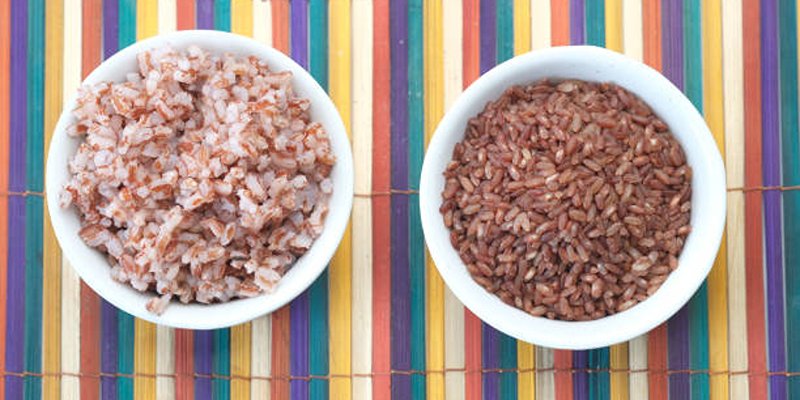Advertisement
Gastroesophageal reflux disease (GERD) is a common digestive disorder affecting numerous individuals worldwide. Characterized by the backward flow of stomach acid into the esophagus, it can cause discomfort and lead to more serious health issues if left unmanaged. While dietary modifications are often recommended to alleviate symptoms, not everyone finds it feasible to overhaul their eating habits. Fortunately, several simple lifestyle adjustments can help manage GERD effectively without making drastic changes to your diet. These adjustments can provide significant relief from symptoms such as heartburn, regurgitation, and chest pain, paving the way for improved overall well-being. By incorporating small, strategic changes into your routine, you can take control of GERD and enjoy daily life with greater comfort and ease.
One of the simplest yet effective adjustments for managing GERD is to elevate the head of your bed. By raising the head of your bed by about 6 to 8 inches, you can prevent the backward flow of stomach acid while you sleep. This elevation helps gravity keep the acid in your stomach, reducing nighttime symptoms like heartburn and regurgitation. You can achieve this by placing blocks under the bedposts or using a wedge pillow. This adjustment not only aids in discomfort relief but also contributes to a more restful sleep, enhancing your overall quality of life.
Along with elevating the head of your bed, changing your sleeping position can also help alleviate GERD symptoms. Sleeping on your left side has been found to be the most effective for managing reflux, as it keeps the stomach below the esophagus, preventing acid from flowing upward. Additionally, avoid sleeping immediately after meals and try to maintain an upright position for at least two hours before bedtime.

Wearing tight-fitting clothing, especially around the abdomen, can exacerbate GERD symptoms by putting extra pressure on the stomach, which encourages acid to flow back into the esophagus. Opting for loose-fitting garments can alleviate this pressure and significantly reduce discomfort. Choose clothes with elastic waistbands or looser cuts that allow for easy movement and comfort. By simply adjusting your wardrobe, you can decrease the likelihood of experiencing heartburn and feel more at ease throughout the day.
Mindful eating plays a crucial role in managing GERD symptoms effectively. By paying close attention to how and when you eat, you can minimize the likelihood of acid reflux episodes. Start by eating smaller, more frequent meals instead of large portions, which can overfill the stomach and increase pressure on the lower esophageal sphincter. Take time to chew your food thoroughly, as this not only aids in digestion but also allows your body to recognize fullness sooner, preventing overeating.
Stress management is a vital component in controlling GERD symptoms, as stress and anxiety can exacerbate acid production and lower the pressure on the esophageal sphincter. Incorporating stress-reducing activities into your daily routine can significantly improve your condition. Techniques such as deep breathing exercises, meditation, and yoga are effective at calming the mind and reducing stress. Additionally, engaging in regular physical exercise and ensuring adequate sleep can help alleviate anxiety and improve your overall digestive health. By taking proactive steps to manage stress, you can decrease the frequency and severity of GERD episodes and enhance your sense of well-being.
Refraining from late-night snacking is an important strategy for managing GERD symptoms. Consuming food too close to bedtime can lead to increased acid production and pressure on the lower esophageal sphincter, resulting in nighttime heartburn and discomfort. It's advisable to eat your last meal or snack at least three hours before lying down to allow adequate time for digestion. This practice ensures that your stomach is less full when you go to bed, reducing the chance of acid reflux symptoms. By establishing a consistent eating schedule and avoiding eating out of boredom or habit in the evenings, you can significantly decrease overnight GERD issues and enjoy more restful sleep.
Chewing gum after meals can be an effective way to manage GERD symptoms. The act of chewing increases the production of saliva, which is alkaline and can help neutralize stomach acid. Furthermore, saliva helps wash away any acid that has backed up into the esophagus, reducing the sensation of heartburn. Opt for sugar-free gum to avoid unnecessary sugar intake and chew it for about 30 minutes following meals. This simple practice can provide significant relief and complement other lifestyle adjustments aimed at controlling GERD symptoms.

Understanding which foods trigger your GERD symptoms is an essential step in managing the condition effectively. Common trigger foods include spicy dishes, citrus fruits, tomatoes, chocolate, mint, and high-fat items. Keeping a food diary can help you pinpoint specific items that exacerbate your symptoms. Once identified, you can adjust your diet to minimize or avoid these triggers altogether. Experimenting with substitute foods that are less likely to cause reflux may also be beneficial. By customizing your diet based on your personal triggers, you can significantly reduce the frequency and severity of GERD episodes, leading to a more comfortable and healthy lifestyle.
GERD may be a chronic condition, but it is manageable with the right lifestyle changes. By incorporating these simple adjustments into your daily routine, you can take control of GERD and enjoy daily life with greater comfort and ease. Remember to consult with your healthcare provider for personalized advice and to rule out any underlying conditions that may be contributing to your symptoms. With proactive management and mindful practices, you can minimize the impact of GERD on your daily life and improve your overall well-being.
Advertisement

By Madison Evans/Dec 10, 2024

By Verna Wesley/Oct 21, 2024

By Georgia Vincent/Oct 20, 2024

By Celia Shatzman/Jan 08, 2025

By Georgia Vincent/Oct 21, 2024

By Gabrielle Bennett /Jan 09, 2025

By Martina Wlison/Oct 26, 2024

By Paula Miller/Oct 11, 2024

By Isabella Moss/Nov 20, 2024

By Kristina Cappetta/Dec 02, 2024

By Celia Kreitner/Oct 12, 2024

By Nancy Miller/Oct 26, 2024